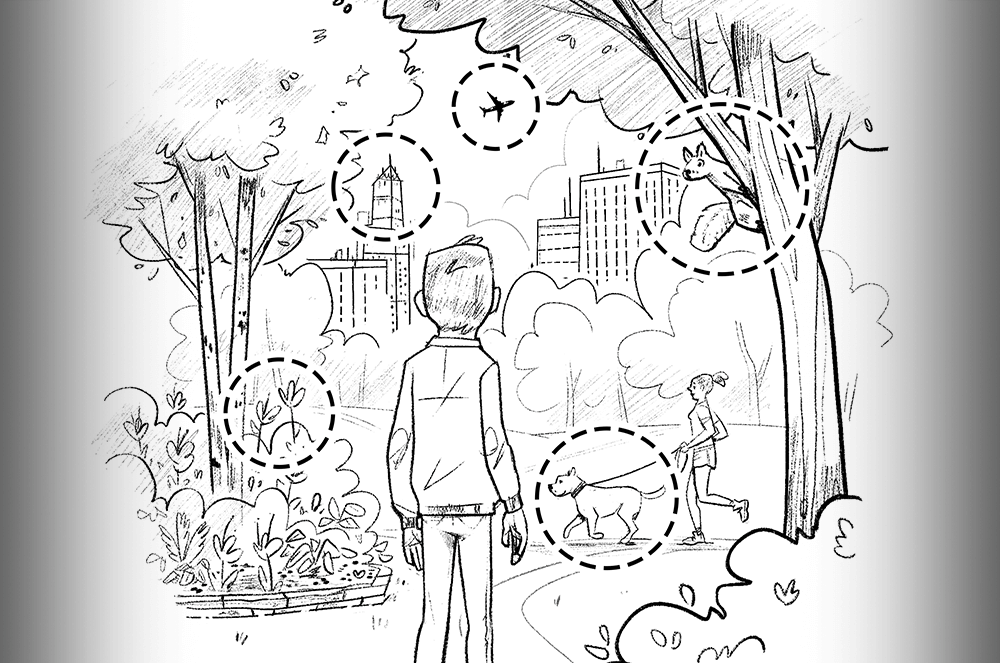
We’ve all had that experience. You sit down to write your next speech and are faced with a number of questions—from topic selection to organizing your points to deciding what information to include. Let’s look at a few of these roadblocks.
Nothing exciting ever happens in my life. How can I find stories or topics to speak about?
My first reaction was, Gee, that sounds like me. Every contest season I struggle with this issue. I don’t have awesome stories that could propel me to the big stage in the World Championship of Public Speaking.
But why is it important for you to have exciting topics? If you are going to speak professionally, you probably already have your topic. But if you are just looking to build your speaking skills, it is more important that you gain experience rather than entertain your club members.
When my wife was a Toastmaster, she expressed her frustration with topic selection. I asked her what she liked. She said, “Cats and flowers.” I told her those were the topics for her next two speeches. She used them and had a fun time writing and delivering both.
Now, if you enjoy competing in the contests, topic selection is slightly more complicated, especially in the International Speech Contest.
I don’t have one of those winner stories. It took me a while to realize that I wasn’t going to win the big trophy. I did make it to the District level twice, though. In one of my contest speeches, I told a story about something that happened at my university over 100 years ago. It had a nice lesson, and it served me well. I learned a lot of performing skills on the District stage. It pushed me to grow.
It is always nice to receive accolades from your club members about your speech topic, but remember why you are in Toastmasters. As long as you are practicing your speaking skills, you can talk about any topic, even if it’s not that exciting.
How factual should a speech be and what parts can be embellished?
The short answer is: It depends.
If you are giving a history lesson, facts are important. And someone in your audience is sure to know if you change something.
However, your task is to clearly convey a message. In a speech I’m writing right now, I am using a quotation that is quite convoluted. I decided to change some of the wording so that it still conveyed the original idea but was easier to understand. I didn’t want to spend time explaining what the quote meant. That is a surefire way to lose an audience.
Additionally, in some of your speeches, your story is an illustration of a principle, and the exact details aren’t important. In that case, feel free to change some of them.
In my District contest speech, there was a line where, after a campus building burned down, the university president said, “We will rebuild it, and we will rebuild it one brick higher.” I created a dramatic scene that led up to his line. I described the students standing around the rubble wondering what was next. Then the president strode up, walked into the rubble, picked up a brick, held it high, and delivered his line. That sounded better than, “The university president said, …”
In my other District contest speech, I told a story about something that happened to me at my university radio station. I was faced with a challenge to read something that was in a language I didn’t know. I ran away from the challenge by saying, “Oh, whatever it is.” Not exactly what you want to say on the air. In the story, I had my boss give me feedback and deliver the lesson: Accept challenges. That was a total fabrication, but it didn’t matter, because it was a story, not a history lesson.
In this case, my experience was a framework for a lesson I wanted to convey. The only difference in the story was that one line. And I don’t think my old boss would mind that I made him the hero of the story.
The bottom line is to stay true to the intent—just make it clearer.
Bill Brown, DTM is a speech delivery coach in Gillette, Wyoming. He is a member of Energy Capital Toastmasters in Gillette. Learn more at billbrownspeechcoach.com.



 Previous
Previous

 Previous Article
Previous Article

